Year 1
The English curriculum is built around the three interrelated strands of language, literature and literacy. Teaching and learning programs should balance and integrate all three strands. Together, the strands focus on developing students' knowledge, understanding and skills in listening, reading, viewing, speaking, writing and creating. Learning in English builds on concepts, skills and processes developed in earlier years, and teachers will revisit and strengthen these as needed.
In Year 1, students communicate with peers, teachers, known adults and students from other classes.
Students engage with a variety of texts for enjoyment. They listen to, read, view and interpret spoken, written and multimodal texts designed to entertain and inform. These encompass traditional oral texts including Aboriginal stories, picture books, various types of stories, rhyming verse, poetry, non-fiction, film, dramatic performances and texts used by students as models for constructing their own texts.
The range of literary texts for Foundation to Year 10 comprises Australian literature, including the oral narrative traditions of Aboriginal and Torres Strait Islander Peoples, as well as the contemporary literature of these two cultural groups, and classic and contemporary world literature, including texts from and about Asia. Literary texts that support and extend Year 1 students as independent readers involve straightforward sequences of events and everyday happenings with recognisably realistic or imaginary characters. Informative texts present a small amount of new content about familiar topics of interest and topics being studied in other areas of the curriculum. These include decodable and predictable texts which present a small range of language features, including simple and compound sentences, some unfamiliar vocabulary, a small number of high-frequency words and words that need to be decoded phonically, as well as illustrations and diagrams that support the printed text.
Students create a variety of imaginative, informative and persuasive texts including recounts, procedures, performances, literary retellings and poetry.
(source: www.australiancurriculum.edu.au)
Achievement Standard
Receptive modes (listening, reading and viewing)
By the end of Year 1, students understand the different purposes of texts. They make connections to personal experience when explaining characters and main events in short texts. They identify that texts serve different purposes and that this affects how they are organised. They describe characters, settings and events in different types of literature.
Students read aloud, with developing fluency. They read short texts with some unfamiliar vocabulary, simple and compound sentences and supportive images. When reading, they use knowledge of the relationship between sounds and letters, high-frequency words, sentence boundary punctuation and directionality to make meaning. They recall key ideas and recognise literal and implied meaning in texts. They listen to others when taking part in conversations, using appropriate language features and interaction skills.
Productive modes (speaking, writing and creating)
Students understand how characters in texts are developed and give reasons for personal preferences. They create texts that show understanding of the connection between writing, speech and images.
They create short texts for a small range of purposes. They interact in pair, group and class discussions, taking turns when responding. They make short presentations on familiar topics. When writing, students provide details about ideas or events, and details about the participants in those events. They accurately spell high-frequency words and words with regular spelling patterns. They use capital letters and full stops and form all upper- and lower-case letters correctly.
(source: www.australiancurriculum.edu.au)
- Plus Plan
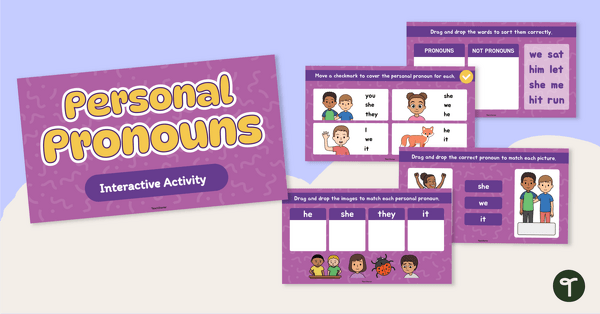
Personal Pronouns Interactive Activity
Use these digital personal pronouns exercises in your grammar lessons to give your students practice in using these essential parts of speech.
- Plus Plan
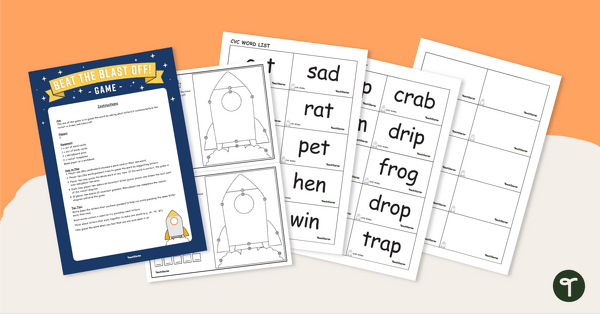
Beat the Blast Off! CVC, CVCC and CCVC Spelling Game
Use this collaborative partner game to familiarise your students with some of the most common CVC, CVCC and CCVC words.
- Plus Plan
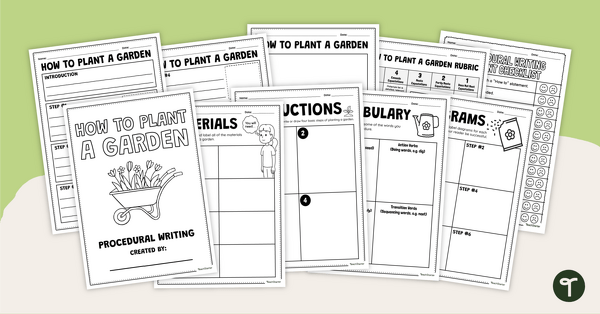
How to Plant a Garden – Procedural Writing Project
Get your students writing high-quality procedure texts with this fun “How to Plant a Garden” procedural writing project.
- Plus Plan
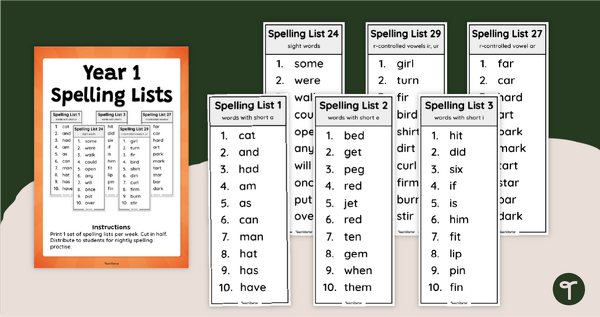
Year 1 Spelling Words - Weekly Lists
Create successful spellers with printable weekly spelling word lists for Year 1.
- Plus Plan
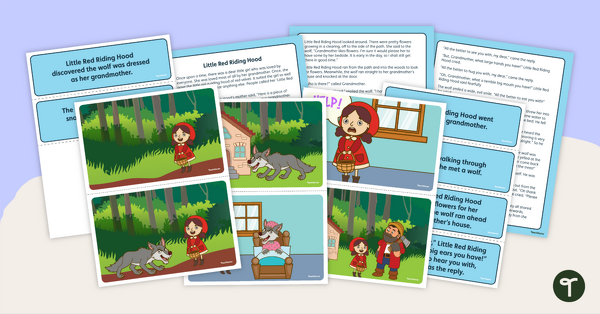
Little Red Riding Hood Retelling Activity Cards
Teach your students about retelling with this set of sequencing cards for Little Red Riding Hood.
- Plus Plan
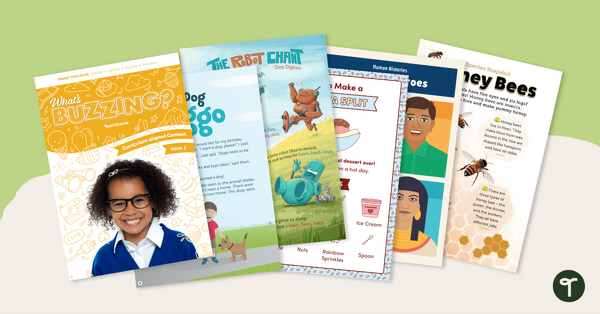
Year 1 Magazine - What's Buzzing? (Issue 1)
A beautifully designed, 24-page reading magazine specifically written for Year 1 students.
- Free Plan
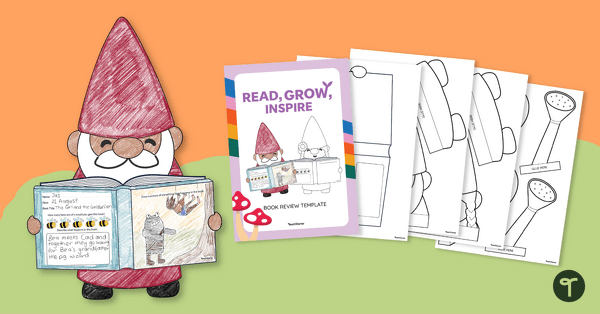
Book Review Templates – Garden Theme
Create a display of student book reviews using this garden-themed book report template.
- Plus Plan
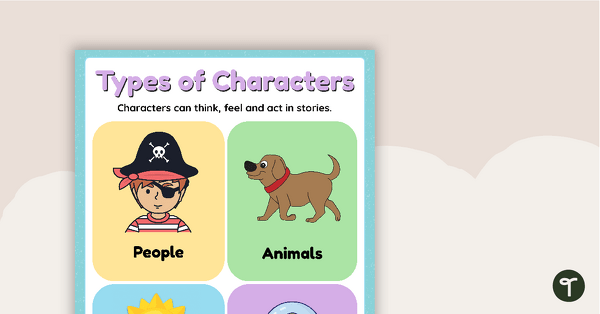
Types of Characters - Poster
Remind students about the types of characters that can be found in stories with this colourful classroom poster.
- Plus Plan
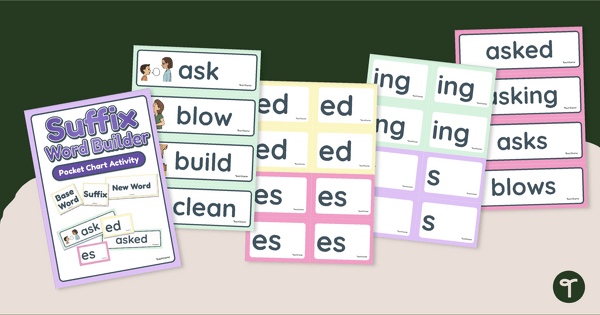
Suffix Word Building Activity
Build words using the suffixes -ed, -es, -s, and -ing with a printable word-building pocket chart card pack.
- Plus Plan
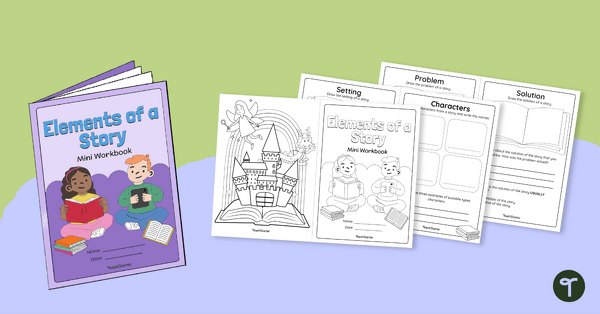
Elements of a Story Activity Workbook
Explore the different elements of a narrative story with this student mini workbook.
- Plus Plan
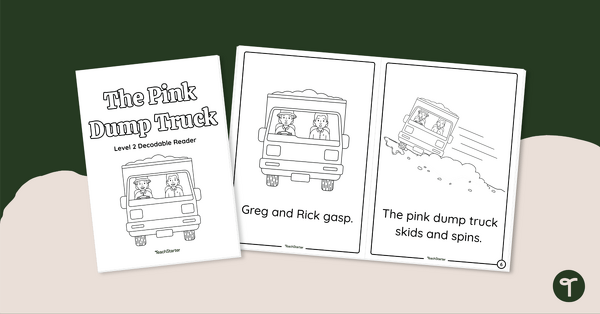
The Pink Dump Truck - Decodable Reader (Level 2)
Develop confident, successful readers with this phonics-based, printable decodable book.
- Plus Plan
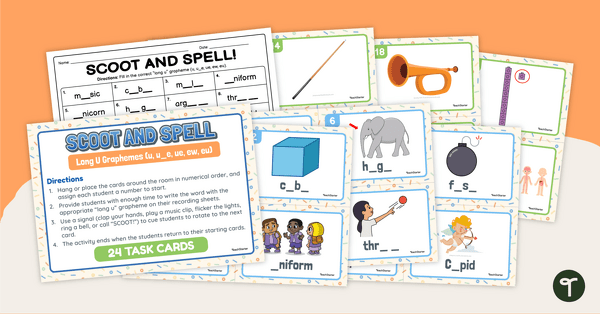
Long U Graphemes - SCOOT! Task Cards
Explore words containing graphemes that make the ‘long u’ sound with this active classroom game that will get your students moving!
- Free Plan
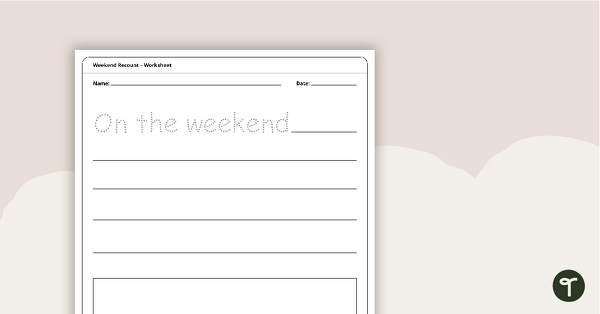
Weekend Recount Worksheet
A worksheet for younger students to use when writing a weekend recount.
- Plus Plan
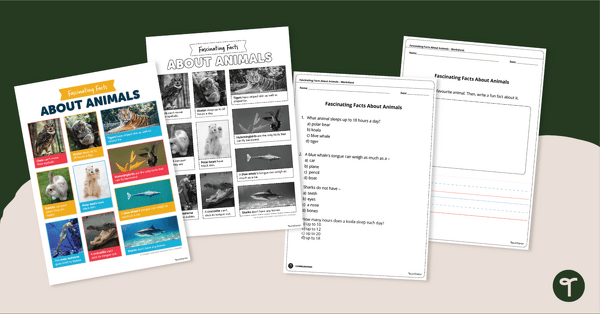
Fascinating Facts About Animals Worksheet
Build reading comprehension skills and learn about amazing animals with a printable year 1 reading comprehension worksheet pack.
- Plus Plan
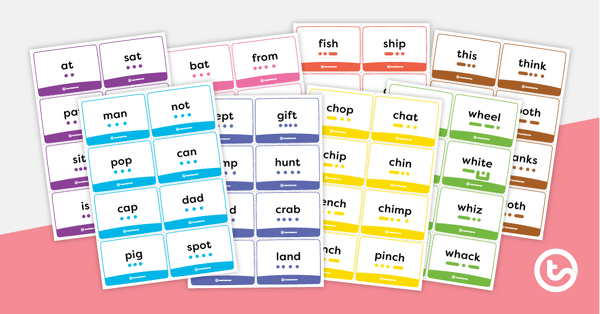
Decodable Sound Button Flashcards – Set 1
A set of over 100 decodable sound button flashcards.
- Plus Plan
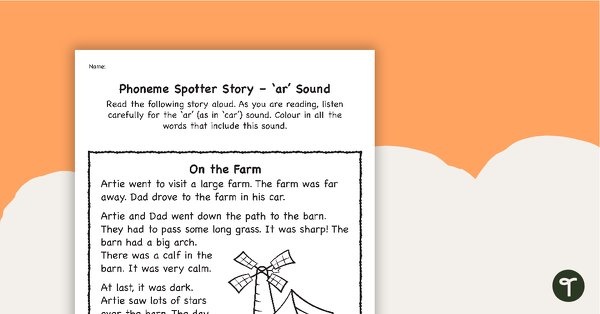
Phoneme Spotter Story – 'ar' Sound
A decodable text featuring various graphemes that make the 'ar' sound.
- Plus Plan
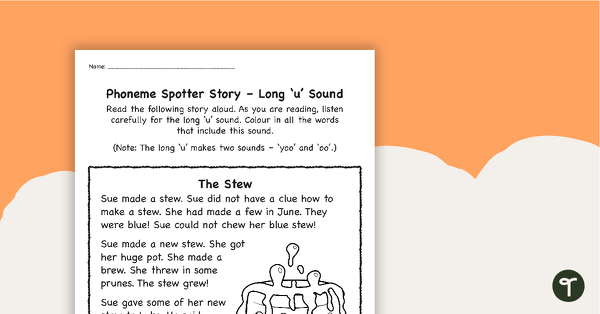
Phoneme Spotter Story – Long 'u' Sound
A decodable text featuring various graphemes that make the long 'u' sound.
- Plus Plan
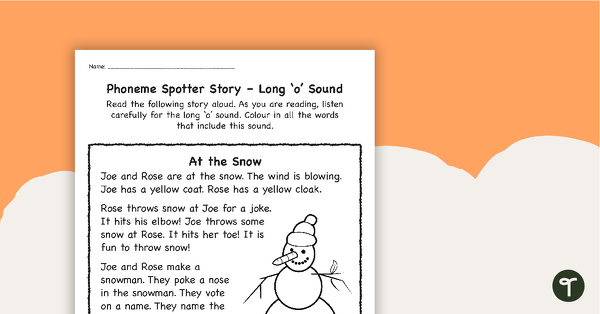
Phoneme Spotter Story – Long 'o' Sound
A decodable text featuring various graphemes that make the long 'o' sound.
- Plus Plan
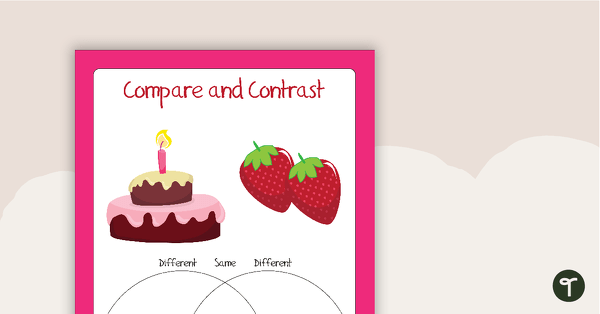
Compare and Contrast - Objects Worksheets
A pack of 5 worksheets comparing and contrasting pictures of similar objects.
- Plus Plan
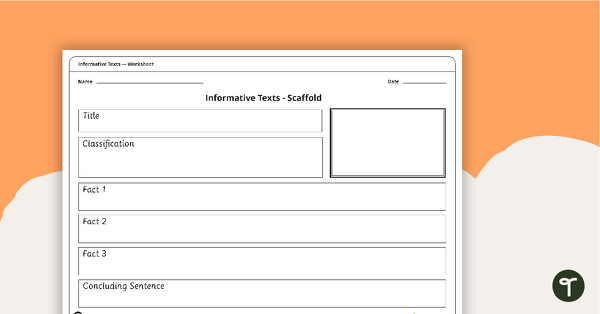
Simple Informative Texts - Writing Scaffold
A simple scaffolding worksheet to use when writing informative texts.
- Plus Plan
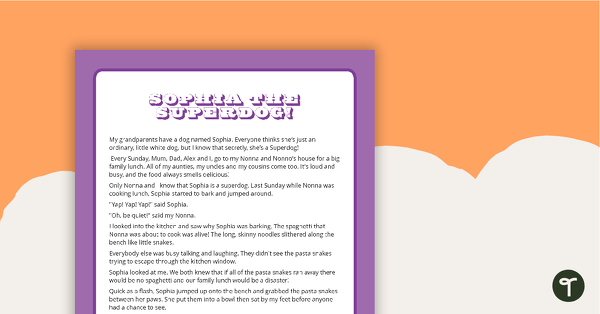
Sophia the Superdog! - Comprehension Text and Questions
A superdog themed text and set of questions to help develop comprehension strategies in the classroom.
- Plus Plan
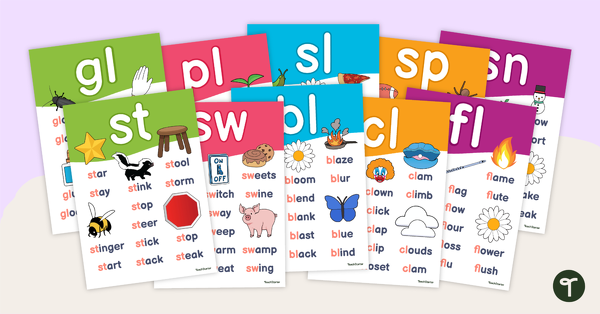
Ultimate Blends Poster Pack
Expose your students to a range of common consonant blends with this set of 20 posters.
- Plus Plan
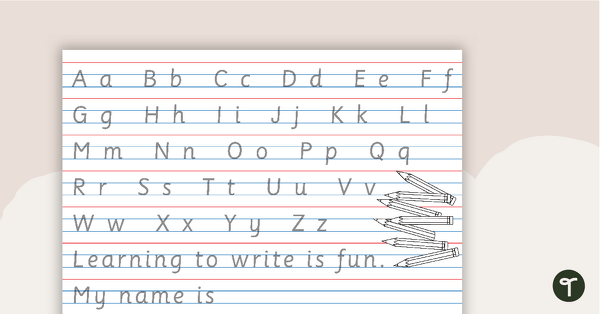
Alphabet Handwriting Sheet - 1 Page
Handwriting sheets with the alphabet and some words for students to trace.
- Plus Plan
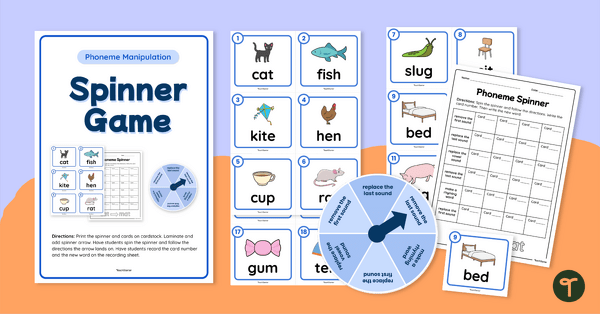
Phoneme Manipulation Game
Explore phoneme manipulation with your students using this fun phoneme manipulation game.
- Plus Plan
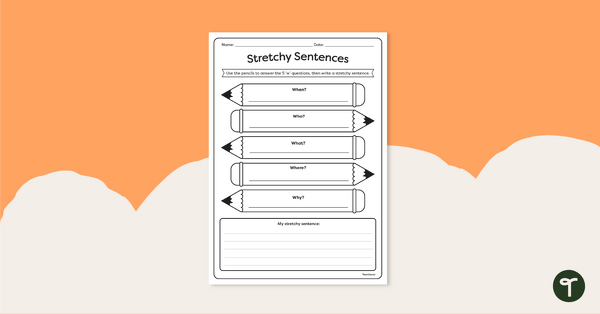
Stretchy Sentences Worksheet
Use this worksheet to help your students write detailed and descriptive sentences.
- Plus Plan
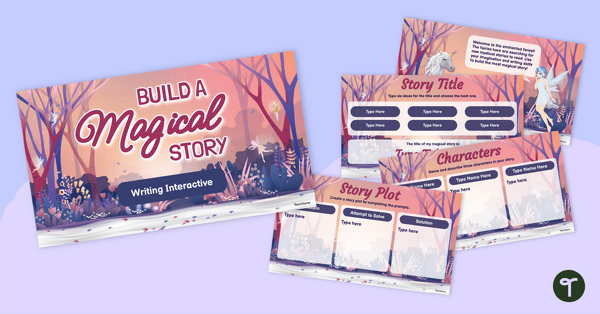
Build a Magical Story Interactive Activity
Use this “Build a Magical Story” narrative writing interactive activity to model the purpose, structural elements and language features of narrative texts.
- Plus Plan
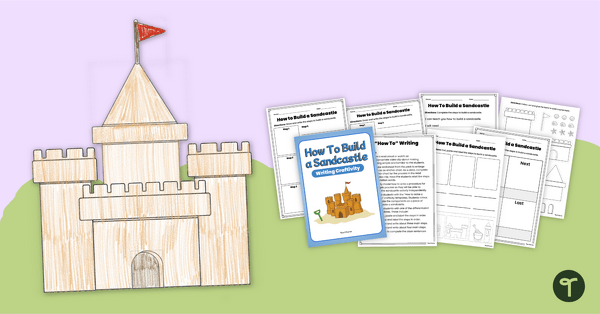
How to Build a Sandcastle – Procedural Writing Craftivity
Use this engaging, hands-on sandcastle craft activity to teach your students all they need to know about procedural writing!
- Plus Plan
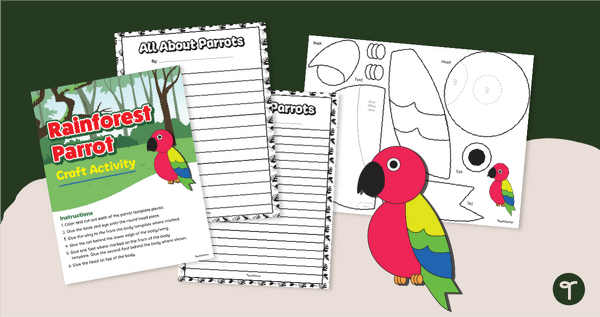
Rainforest Bird Craft & Writing Template
Pair a fun bird craft and informational writing to create a fun jungle-themed classroom display.
- Plus Plan
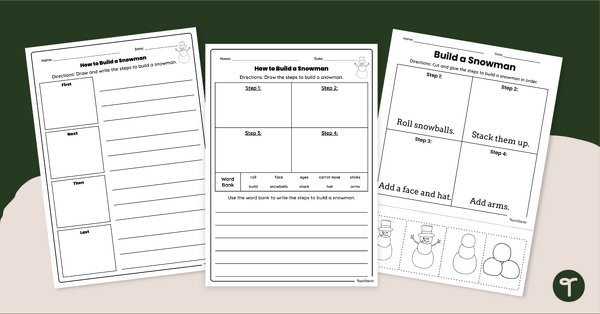
How to Build a Snowman - Procedural Writing Worksheets
Explain how to build a snowman with a pack of printable year 1 writing activities.
- Plus Plan
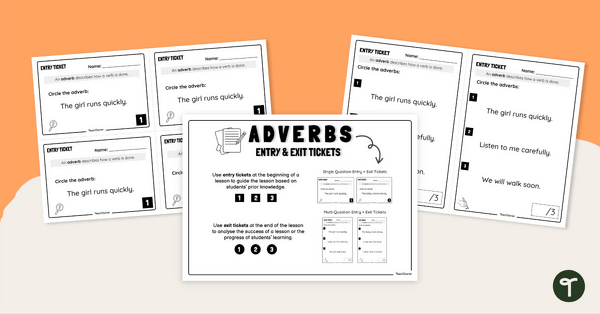
Adverb Entry and Exit Tickets (Differentiated)
Use these exit tickets to teach your students how to use adverbs to add detail in simple sentences!
- Plus Plan
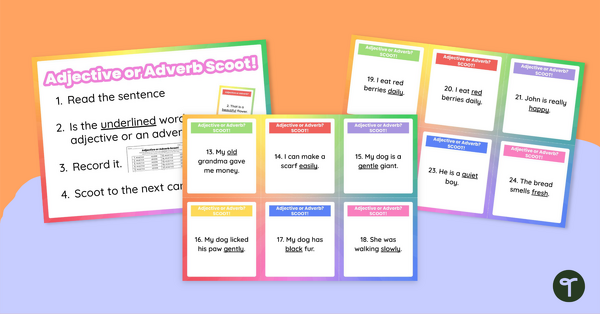
Adjective and Adverb Scoot Game
Scoot! This fun active learning game will have your students up and about on an adverb and adjective adventure around your classroom!
- Plus Plan
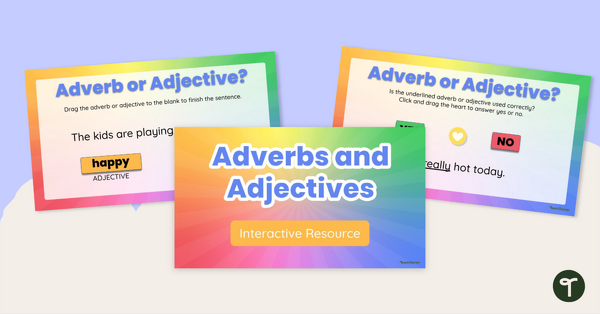
Adverbs and Adjectives Interactive Activity
Share this interactive drag-and-drop activity with your students to allow them to practise the correct use of adverbs and adjectives in the English language.